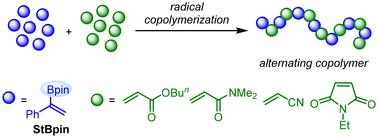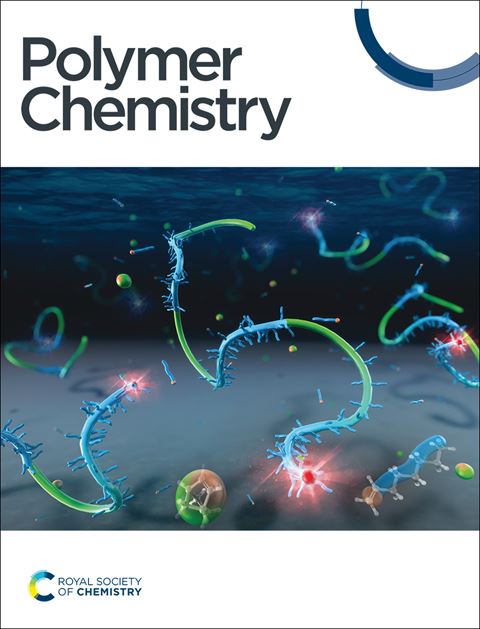Alternating radical copolymerization of α-styrylboronic acid pinacol ester with electron-deficient olefins†
IF 3.9
2区 化学
Q2 POLYMER SCIENCE
引用次数: 0
Abstract
Here, α-styrylboronic acid pinacol ester () has been found to undergo alternating radical copolymerization with electron-deficient olefin comonomers, including n-butyl acrylate, N,N-dimethylacrylamide, acrylonitrile, and N-ethylmaleimide. Compared with styrene, which also copolymerizes with these electron-deficient olefins in an alternating manner, resulted in the formation of copolymers with higher alternating selectivity, but lower yields and low molecular weights due to its diminished reactivity.

α-苯乙烯硼酸频哪醇酯与缺电子烯烃的交替自由基共聚作用
研究发现,α-苯乙烯基硼酸频哪醇酯(StBpin)可与丙烯酸正丁酯、N,N-二甲基丙烯酰胺、丙烯腈和 N-乙基马来酰亚胺等缺电子烯烃共聚单体发生交替自由基共聚。苯乙烯也能以替代方式与这些缺电子烯烃共聚,与苯乙烯相比,StBpin 能形成具有更高交替选择性的共聚物,但由于其反应活性降低,产量和分子量都较低。
本文章由计算机程序翻译,如有差异,请以英文原文为准。
求助全文
约1分钟内获得全文
求助全文
来源期刊

Polymer Chemistry
POLYMER SCIENCE-
CiteScore
8.60
自引率
8.70%
发文量
535
审稿时长
1.7 months
期刊介绍:
Polymer Chemistry welcomes submissions in all areas of polymer science that have a strong focus on macromolecular chemistry. Manuscripts may cover a broad range of fields, yet no direct application focus is required.
文献相关原料
公司名称
产品信息
阿拉丁
n-butyl acrylate (BA)
 求助内容:
求助内容: 应助结果提醒方式:
应助结果提醒方式:


